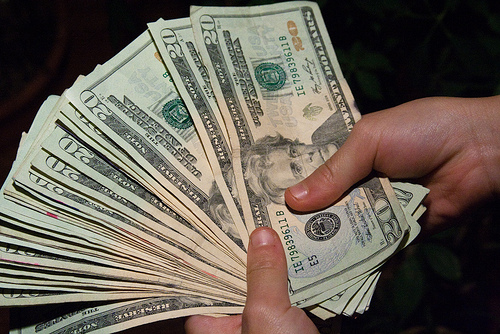I’d like to think I’ve gotten pretty good at working within my budget and monitoring my expenses, but sometimes little things can sneak up on you. Advertised costs aren’t always what they appear to be – hidden fees are popping up more frequently now than ever. They’re the charges that aren’t included in the up-front payment price, and they can be as small as a buck or two, or as much as a few thousand dollars (obviously depending on what you’re purchasing). Sometimes you can work your way around a few of these fees in order to save a little extra money. Check out some of the most common ones below:
Airline luggage fees. Almost every airline will charge you for a checked bag, ranging anywhere from $25 – $50 each. The more it weighs, the more you’ll pay. Avoid this fee by packing a carry-on that you can take on the plane with you. If you have to check a bag, be sure to keep it light! Take these fees into account when purchasing your ticket; a particular flight might be cheaper, but you might pay more for your first checked bag. Look into all of your options first!
Hotel fees. Hotels can charge you any number of additional fees for anything ranging from using the safe in your room to taking advantage of the pool or fitness center. Some of them are unavoidable, but some can easily be removed from your bill just by asking to speak with someone at the front desk. It doesn’t always work, but it’s definitely worth a shot.
Checking or Savings Account fees. Some banks require that you keep a minimum balance in your account at all times or else they’ll charge you a fee. Switch to a bank that won’t require a minimum, or else be vigilant about how much money you’re taking out of your account. You can also get hit with overdraft fees if you’re not careful. Some banks allow you to connect your savings account to your checking for situations just like this, and they’ll take the needed money straight out. Certain banks even offer “overdraft protection” where they allow you a short grace period (usually a day or so) to add more money to your account.
Credit Card Interest. While it may not exactly be a “hidden fee,” many people tend to forget about interest charges that accrue on credit card bills. The easiest way to avoid this? Don’t use your credit card! You won’t pay interest on a non-existant balance. If you do have to use it, pay off the balance as soon as you can.
Recurring Payment fees. Many companies offer incentives to encourage people to go paperless and pay their bills online. While this is both great for the environment and convenient, there are sometimes hidden “service charges” that occur with each payment. Consider your payment options and choose the one that simply goes to the balance you’re paying for. If that’s not an option, consider making multiple payments together, reducing the number of service charges you’ll pay overall.
Have you ever found yourself dealing with unexpected charges? What was your solution for avoiding them?

